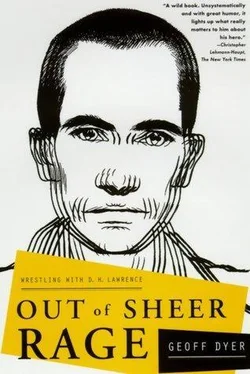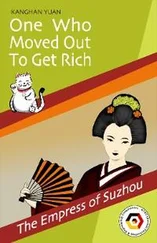That anguish, that uncertainty, became more and more intense as time went by but I wonder now if it was not akin to the burning that a rocket experiences as it passes through the earth’s atmosphere and into space; if it was not, in my case, the friction felt before passing into some zone of total liberation: a last tug of gravity tempting me to settle. Perhaps I experienced it so strongly precisely because this resistance was making itself felt for the last time, because the last root was about to give way.
Birds in flight, claims the architect Vincenzo Volentieri, are not between places, they carry their places with them. We never wonder where they live: they are at home in the sky, in flight. Flight is their way of being in the world. If I could have stuck it out a little longer maybe I could have become bird-like, at home in flight, free. But who knows? Maybe that moment of total letting-go, of utter liberation, never comes. In which case maybe it was the right decision to move to Dullford — especially since now that I am here I have no desire to be here. Now that I have a place, a base, I am free to wander without the anguish of wondering where to live. It is difficult to become a bird but it is relatively easy to become a boat: if you have a harbour you can drift far away from it. So now I have a harbour, a lovely little two-bedroom nest-harbour in Dullford, conveniently located for local shops, bus and train stations, within easy reach of Heathrow. .
That’s one way of looking at it but I know I’ve let myself down, sold myself short. ‘It is the capitulation a man has to make sooner or later,’ Lawrence wrote to Edward McDonald on hearing that he had bought a house. ‘The tortoise makes his hundred paces, then takes firmly to his shell.’ On the brink of becoming a bird I settled for being a tortoise. Rilke was right:
We can so easily
slip back from what we have struggled to attain,
abruptly, into a life we never wanted;
can find that we are trapped, as in a dream,
and die there, without ever waking up.
Were I to die now, in Oxford, today, it would be the most awful end to my life, everything accomplished would be belittled by this fact. And since I don’t want to die here, what am I doing living in the town where I went to university, forty miles along the A40 from the town where I went to school, where I was born, where my dad was born?
‘The tragedy of Lawrence the working-class boy is that he did not live to come home.’ I remember, very clearly, the first time I read this, fifteen years ago, in Culture and Society . I was on a bus in Brixton and Raymond Williams’s remark seemed one of the most pertinent and poignant things anyone had ever written about Lawrence. There it was: the last word on Lawrence. It wasn’t just that Williams was right about Lawrence: I believed what he said, almost as an article of faith.
Only now can I see how wrong Williams was. This might have been the tragedy of Lawrence the working-class boy but to see Lawrence in these terms, to see him as the working-class boy, is to sell him short in much the same way that Frieda considered Leavis had done (‘from The Rainbow on,’ she chided, ‘Lawrence is no longer a British writer, but a universal one’). The trajectory of Lawrence’s life was not to leave his origins behind but to go beyond them.
How wrong Williams is becomes obvious as early as ‘The Return Journey’, the final section of Twilight in Italy . At an inn Lawrence meets an Englishman, a clerk who is on a walking holiday. ‘Holiday’, as Lawrence discovers, is hardly the right word, for the young man from Streatham has set himself a gruelling itinerary to cram into his two weeks’ annual leave. When Lawrence meets him he has almost accomplished his goal but is ‘sick with fatigue and over-exhaustion’. At first Lawrence is aghast at his determination and courage, then shocked to discover that after this heroic exertion of will-power he is going back to London — to the machine. The fact that the Englishman’s awful itinerary was effectively controlled by London, by the machine, makes Lawrence flinch: ‘His eyes were dark and deep with unfathomable courage. Yet he was going back in the morning. He was going back. All he had courage for was to go back. He would go back, though he died by inches. Why not? It was killing him, it was like living loaded with irons. But he had the courage to submit, to die that way, since it was the way allotted to him.’ Lawrence would later describe the men going off to fight in France in almost identical terms; now, torn between admiration and horror, he responds with pity: ‘My heart was wrung for my countryman, wrung till it bled.’ This equipoise of emotion cannot be maintained for long: in the morning when Lawrence gets up to find the clerk gone there is a characteristic and convulsive change in feeling: ‘Suddenly I hated him. The dogged fool, to keep his nose on the grindstone like that. What was all his courage but the very tip-top of cowardice.’
Lawrence resumes his own journey and then pauses on a hill. ‘I looked down the direction of the furka, and thought of my tired Englishman from Streatham, who would be on his way home. Thank God I need not go home: never perhaps.’ This, for me, is one of the huge moments in Lawrence, tossed out in passing, not dwelt upon, but looking way beyond Williams — and back to Nietzsche. Back, precisely, to Human, All Too Human , to the preface in which Nietzsche describes a crucial stage in the evolution of the ‘free spirit’. At certain moments, writes Nietzsche, a person undertaking ‘the dangerous privilege of living experimentally ’ will experience ‘a pale, subtle happiness of light and sunshine, a feeling of bird-like freedom, bird-like altitude, bird-like exuberance, and a third thing in which curiosity is united with a tender contempt’. At his ‘bird-like altitude’ in the Alps Lawrence experiences exactly this sudden, liberating surge that renders an entire life worthwhile because it has led to this moment when you are in the middle of your destiny, ready to accept anything that comes. Given Lawrence’s circumstances that day, Nietzsche’s imagery could hardly be more apposite: in a book written for those ‘free spirits’ who do not yet exist, whose path he is hoping to ease into the world, it is as if he is describing Lawrence’s feelings; conversely, Lawrence, at this moment, is, as it were, reading Nietzsche.
Oh, and I know that feeling; I’ve experienced it in New Orleans, in Algiers, even, at odd moments, in Sweden where the temperature only climbed above zero once in the six frozen weeks I spent there — but there is no chance of ever feeling it in Dullford, in England. .
One of Rilke’s last important poems was written in August 1926, a few months before his death. Here is part of it in Jeremy Reed’s free adaptation:
To know serenity the dove must fly
far from its dovecote, its trajectory
informs it, distance, fear, the racing sky
are only understood in the return.
The one that stayed at home, never tested
the boundaries of loss, remained secure,
only those who win back are ever free
to contemplate a newer, surer flight.
But when do you return? For a long time I thought that the contentment I experienced when I did finally settle would be the more intense — if contentment can become more intense without becoming something less contented; perhaps contentment is precisely a lack of intensity — for having been postponed so long. Only to discover that there was no contentment, that there was in fact no change at all, at best there was a temporary muffling of discontent which was soon making itself felt as powerfully as before.
Читать дальше












